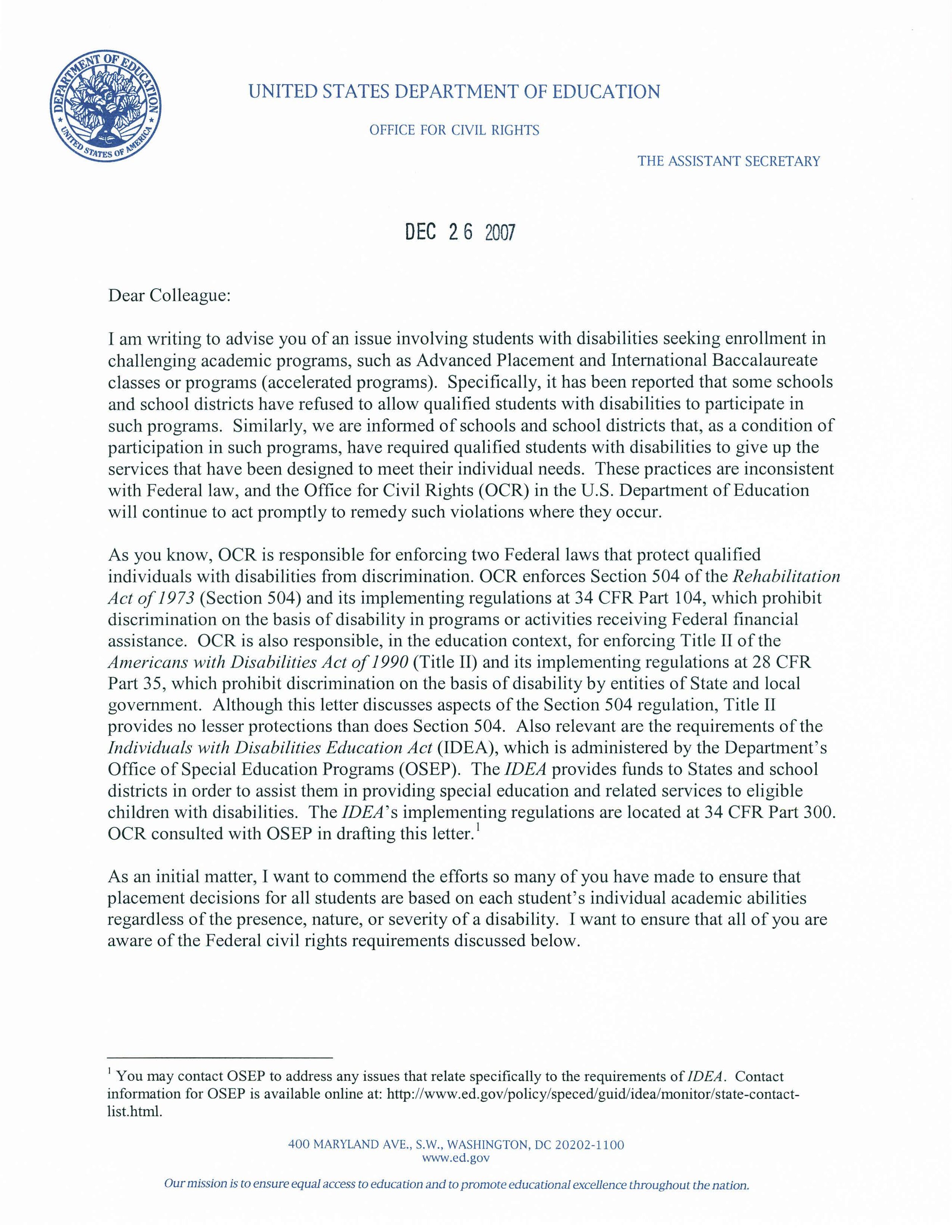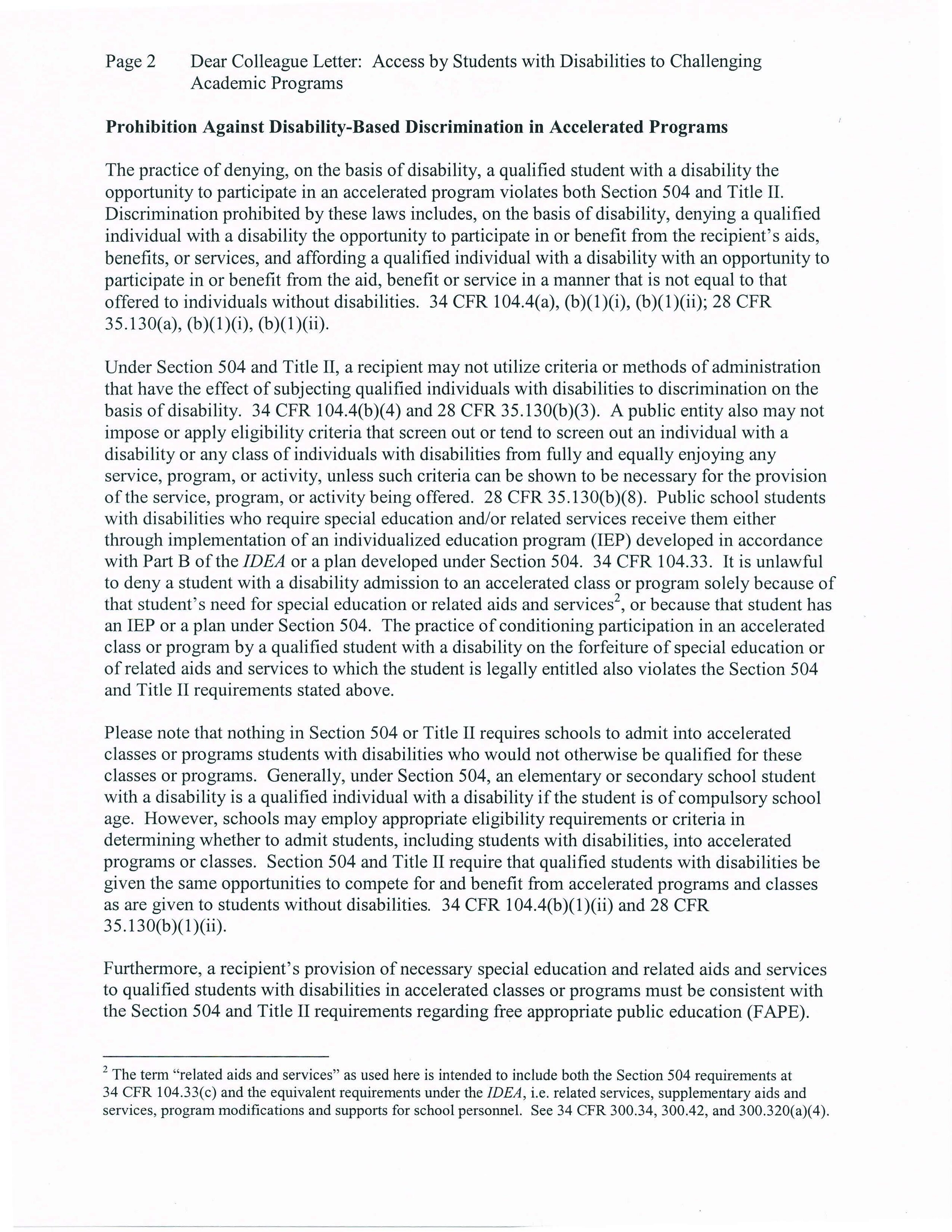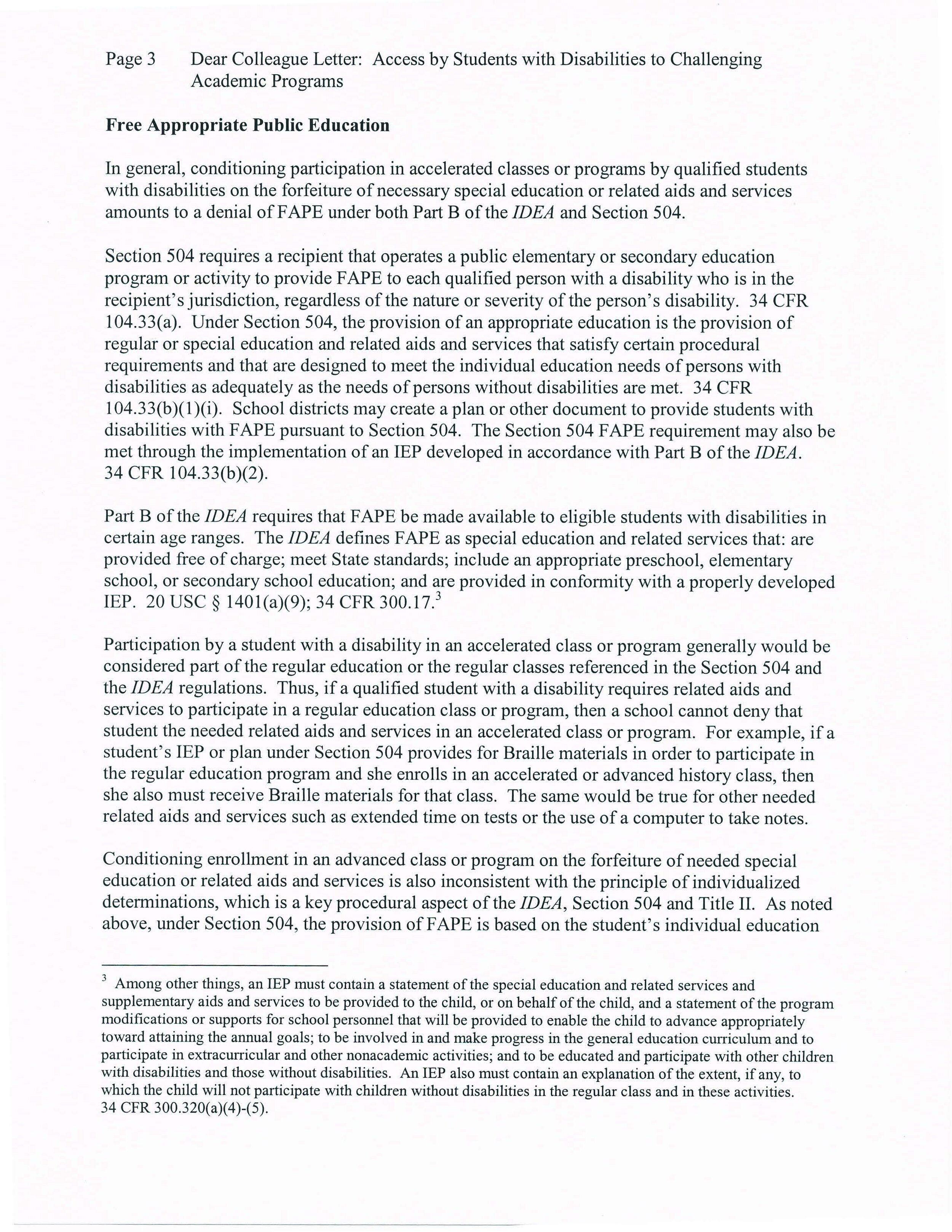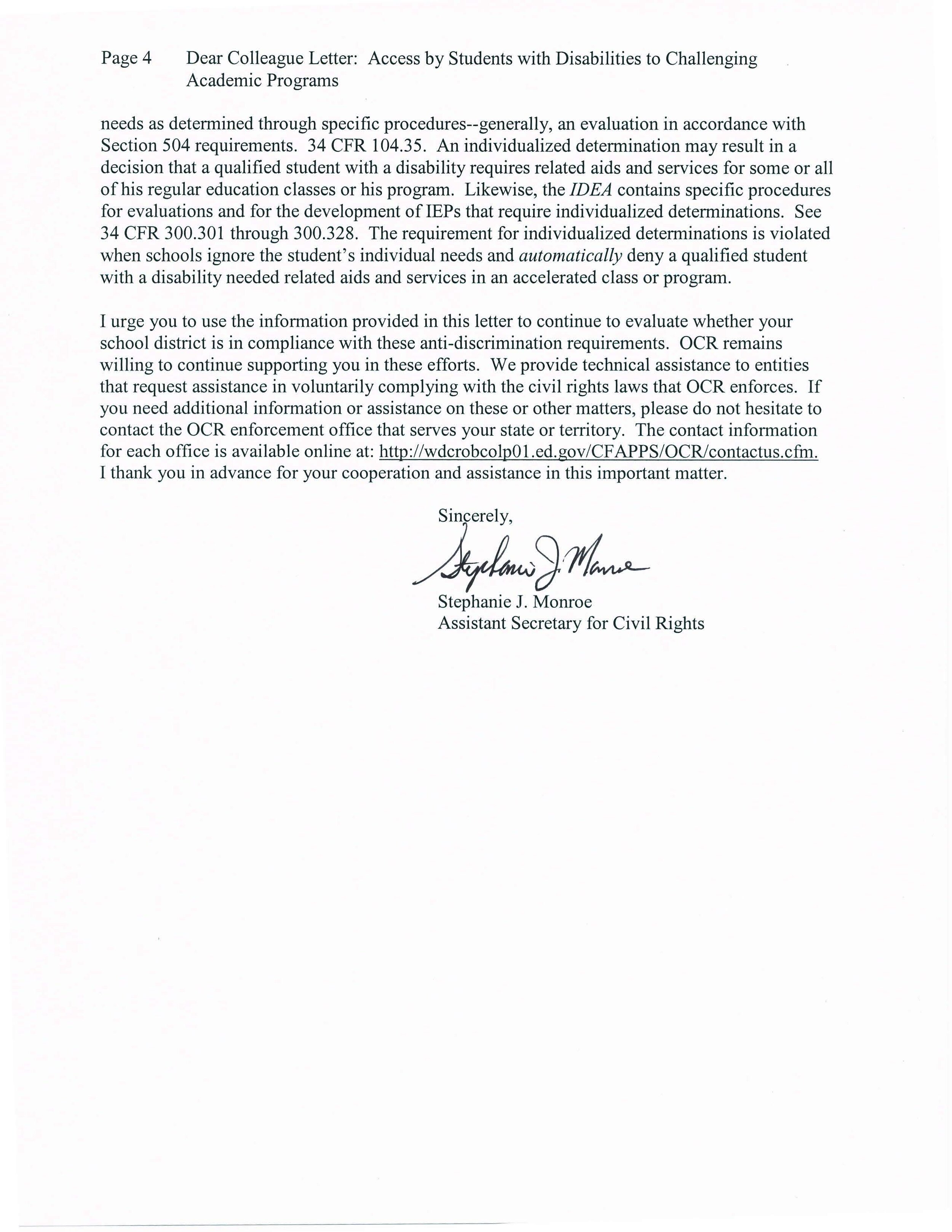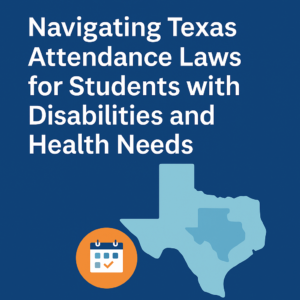Today I realized that this is a real issue. In some instances, schools have denied children with Individualized Education Plans (IEP’s) or 504 plans access to advanced classes. This is clearly against the laws of the Individuals with Disabilities Education Act of 2004 and the right to a Free and Appropriate Public Education (FAPE).
This attached letter from the U.S. Dept of Education and Office of Civil Rights addresses any circumstance in which a child may have been denied access to an advanced class on the sole basis of that child having an IEP or 504 plan. It also covers your child’s right to the same types of accommodations, aids or modifications for accelerated classes as it does for regular classes. This is a great proof source if you are coming up against either of these situations.
Don’t be put off by the references to the statutes or legal jargon. It is a very helpful and powerful piece of information for special education families. It is a clear clarification of the laws that are sometimes hard to find.
